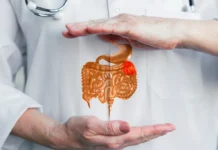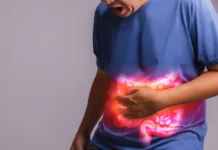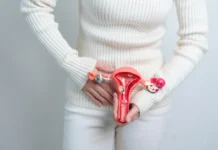What are ovarian follicles?
Ovaries, the jewel boxes of the female reproductive system, reside nestled in the lower abdomen, flanking the uterus on either side. These twin generators create and hold onto ova (precious pearls destined for motherhood) throughout a woman’s fertile years.
Ovarian follicles, fluid-filled pockets, can develop either within the ovary or upon its surface. Often small and innocuous, they tend to vanish on their own, causing no distress or requiring intervention. While most women will encounter these follicles at some point, typically producing little to no discomfort, those causing pain or abnormal bleeding warrant a doctor’s consultation.
What are the signs of ovarian follicles?
Tiny ovarian follicles generally self-destruct and remain symptom-free. However, as they expand, depending on their origins, they can manifest in various ways. Some telltale signs of ovarian follicles include the following:
- Persistent abdominal discomfort, swelling, or bloating
- Pain during your menstrual cycle or around it
- Discomfort during bowel movements
- Pain during sexual intercourse
- Aching or pain in the lower back and thighs
- Unusual vaginal bleeding
- Frequent urination
- A shift in your menstrual regularity
- A loss of appetite or unexpected weight loss
Ovarian Cysts and When to Seek Medical Attention
When is it advisable to consult a physician regarding ovarian cysts? Despite being commonplace among menstruating women, it is imperative to promptly seek medical attention if you encounter any of the ensuing symptoms:
- Intense cramping and acute pelvic pain
- Fever
- Nausea and vomiting induced by pain
- Sensation of dizziness or faintness
A medical professional will conduct a routine examination along with a scan. Additionally, you might be required to undergo blood tests to assess hormone levels and rule out ovarian cancer. While benign ovarian cysts typically do not transform into cancerous growths, it is crucial to consult a doctor for an accurate and timely diagnosis, given that the symptoms of ovarian cancer can resemble those of an ovarian cyst.
What are the factors contributing to ovarian cysts? Some prevalent causes include:
- Ovarian cysts arising from hormonal irregularities: Polycystic ovary syndrome (PCOS) exemplifies ovarian cysts resulting from underlying hormonal fluctuations. PCOS manifests when numerous small cysts form in the ovaries, producing hormones known as androgens. These hormones can influence a woman’s menstrual cycle and fertility.
- Ovarian cysts linked to endometriosis: Endometrioma, an ovarian cyst, develops in individuals with endometriosis, a chronic condition characterized by tissue growth outside the uterus and on other abdominal organs. When endometrial tissue attaches to an ovary, it can form a growth, causing painful periods and discomfort during intercourse.
- Ovarian cysts stemming from infections: In instances where infections affect the ovaries and fallopian tubes, ovarian cysts may develop. Typically, they dissolve after treatment; however, persistent pain may necessitate a doctor’s visit.
What are the diverse varieties of ovarian formations?
Ovarian cysts are a fundamental facet of a woman’s menstrual cycle and frequently vanish spontaneously without any medical intervention. Functional cysts, generated in menstruating women, are the most prevalent type of ovarian cyst.
They generally dissolve within a few weeks or a couple of menstrual cycles, are innocuous, seldom cause discomfort, and go unnoticed by most women. Although less frequent, pathological ovarian cysts don’t arise as a result of a woman’s menstrual cycle but due to anomalous cell proliferation.
As they are independent of a woman’s reproductive phase, they can crop up at any time before or after menopause. Similar to functional ovarian cysts, they can expand to a considerable size and obstruct blood flow to the ovaries, triggering twisting. The majority of pathological cysts tend to be benign, but as some can become malignant, doctor monitoring is necessary.
Functional Ovarian Formations:
- Follicular Ovarian Encapsulations
- Corpus luteum Ovarian Encapsulations
- Pathological Ovarian Formations
- Dermoid Ovarian Encapsulations
- Cystadenomas Ovarian Encapsulations
- Endometrioma and Ovarian Encapsulations
What are some of the hazards associated with ovarian formations?
While ovarian cysts are a naturally occurring phenomenon in women who are in their reproductive years, some patients have a higher vulnerability. These include:
- Women with a historical record of a prior cyst
- Women diagnosed with endometriosis
- An infection in the pelvis that spreads to the ovaries and engenders cysts
- Patients taking Clomid, a fertility medication that facilitates ovulation
- A cyst forms during conception and persists on the ovaries post-pregnancy.
What are some of the complications associated with ovarian formation?
Regular pelvic examinations are crucial, as some patients, particularly menopausal and postmenopausal women, can develop some of the rarer types of ovarian masses that can only be identified through consistent examinations. Some complications associated with ovarian cysts can include:
- Ovarian Cyst Torsion: Large ovarian cysts can cause the ovaries to shift and twist. This is called ovarian torsion. It can lead to a decrease or complete cessation of blood flow to the ovary and can be highly distressing for the patient. Consult a doctor immediately if you have severe pelvic pain, nausea, or vomiting.
- Ovarian Cyst Rupture: When ovarian cysts become excessively large, they can rupture, causing intense pain and internal bleeding. Consult a doctor immediately to obtain assistance.
Ovarian Cyst Treatment Options:

If an ovarian cyst is causing discomfort, you may consider medications that reduce the size of the cyst or surgical procedures to remove it. Here are some potential treatment approaches:
- Hormonal contraceptives: For women prone to recurring cysts, oral contraceptives can be an effective option. These medications inhibit ovulation, reducing the likelihood of new cysts forming.
- Laparoscopy: For smaller cysts, especially when there’s suspicion of cancer, minimally invasive laparoscopy may be recommended. This procedure allows for examination and, if necessary, removal of the cyst.
- Laparotomy: For larger or more complicated cysts, a larger incision may be necessary to perform laparotomy and remove the cyst. This procedure often involves an immediate biopsy to rule out cancer. In rare cases of malignancy, a hysterectomy (removal of the ovaries and uterus) might be required.
Home Remedies for Ovarian Cysts:
While complete prevention isn’t possible, dietary modifications can potentially influence PCOS-related cysts. Since roughly half of women with PCOS are overweight, managing insulin resistance becomes crucial. Limiting refined carbohydrates, such as white bread, potatoes, and sugary desserts, can help fight insulin resistance and potentially reduce cyst formation.
Additionally, incorporating high-fiber foods like broccoli, leafy greens, berries, squash, and nuts can further decrease the risk of PCOS-related cysts. Opting for lean protein sources like fish, chicken, and tofu, along with incorporating anti-inflammatory foods like kale, tomatoes, and turmeric, may also contribute to managing insulin resistance.
Ovarian Cyst Prevention:
For women who ovulate, completely preventing cysts is not feasible. However, they often diminish naturally as menopause approaches. For women prone to recurrent cyst development, a doctor may recommend hormonal birth control to suppress ovulation. This can be achieved through oral contraceptives or a hormonal IUD, both of which can help minimize the risk of new cysts forming.
Early Diagnosis and Treatment:
For timely diagnosis and appropriate treatment of lower abdominal pain or ovarian cysts, particularly those related to PCOS, consulting an experienced gynaecologist at Medical Seek is crucial.














